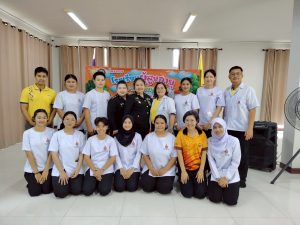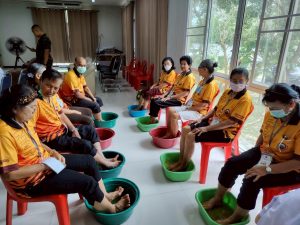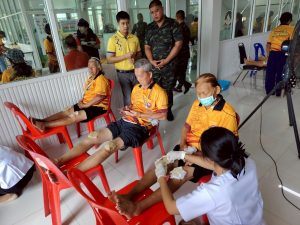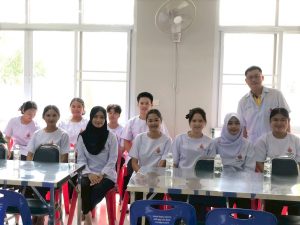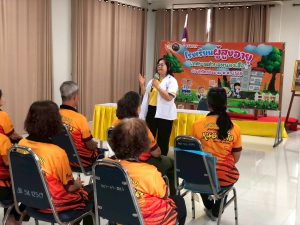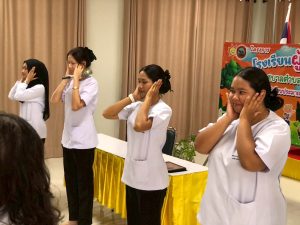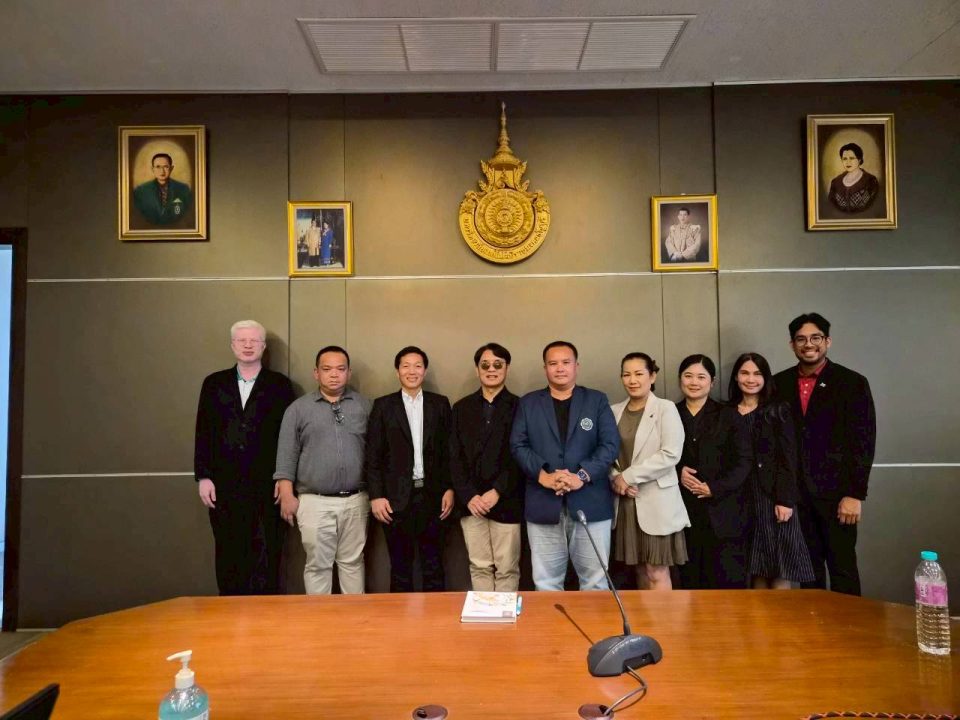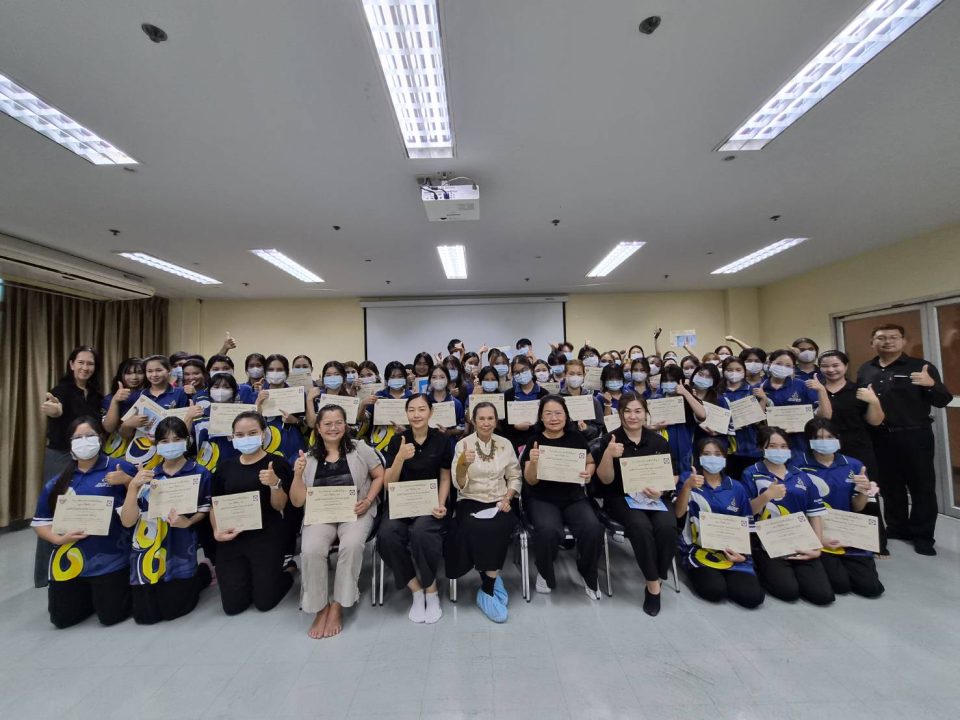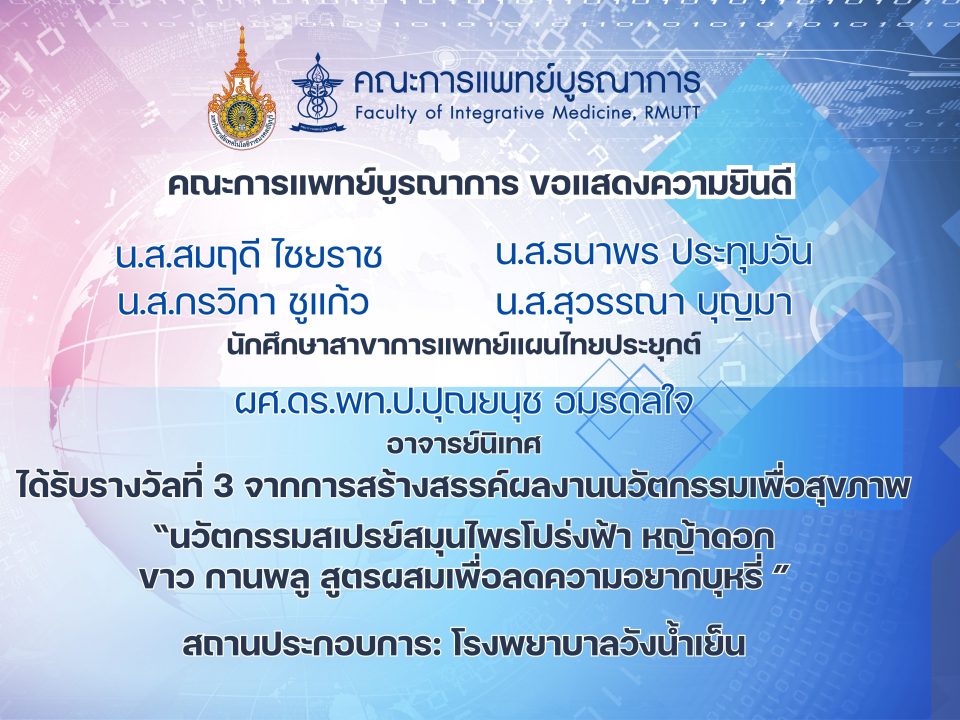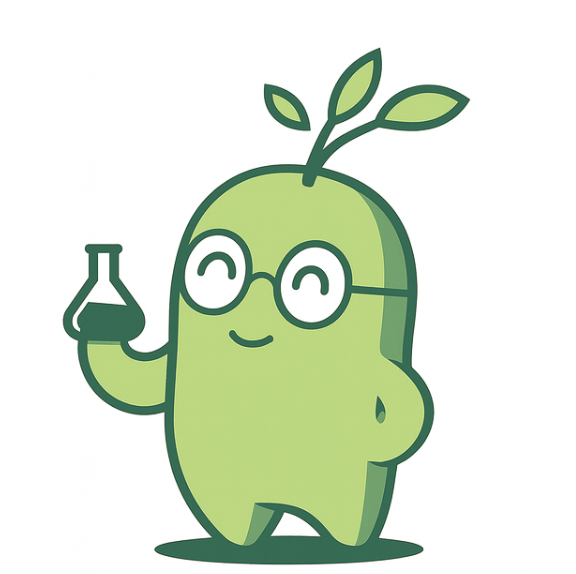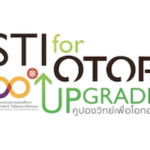
คณะการแพทย์บูรณาการ มทร.ธัญบุรี ขับเคลื่อนวิทยาศาสตร์สุขภาพเพื่อชุมชน ผ่านโครงการคูปองวิทย์และทุนวิจัย สกสว.
07/07/2025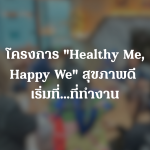
คณะการแพทย์บูรณาการ มทร.ธัญบุรี ออกบริการวิชาการสู่สังคม ในกิจกรรม Healthy Me, Happy We” สุขภาพดี เริ่มที่…ที่ทำงาน
09/07/2025การจัดการศึกษากับเป้าหมายการพัฒนาที่ยั่งยืน / Education Management in Alignment with the SDGs
คณะการแพทย์บูรณาการ มหาวิทยาลัยเทคโนโลยีราชมงคลธัญบุรี มุ่งมั่นพัฒนาการจัดการศึกษาที่สอดคล้องกับ เป้าหมายการพัฒนาที่ยั่งยืนขององค์การสหประชาชาติ (Sustainable Development Goals: SDGs) เพื่อผลิตบัณฑิตที่มีความรู้ ความสามารถ และจิตสำนึกในการสร้างสังคมสุขภาวะอย่างยั่งยืน โดยคณะฯ ให้ความสำคัญกับ SDG 3: Good Health and Well-being เป็นเป้าหมายหลักของการดำเนินงาน โดยบูรณาการองค์ความรู้ด้านการแพทย์แผนปัจจุบัน การแพทย์แผนไทย การแพทย์ทางเลือก และศาสตร์สุขภาพองค์รวม เพื่อส่งเสริมการมีสุขภาพที่ดีในทุกช่วงวัย ทั้งในระดับบุคคล ครอบครัว และชุมชน
นอกจาก SDG 3 แล้ว คณะฯ ยังสนับสนุนเป้าหมายอื่น ๆ ที่เกี่ยวข้อง ได้แก่
-
SDG 4 – การศึกษาที่มีคุณภาพ
-
SDG 9 – อุตสาหกรรม นวัตกรรม และโครงสร้างพื้นฐาน
-
SDG 12 – การบริโภคและการผลิตที่ยั่งยืน
-
SDG 13 – การรับมือกับการเปลี่ยนแปลงสภาพภูมิอากาศ
-
SDG 17 – ความร่วมมือเพื่อการพัฒนาที่ยั่งยืน
ในการขับเคลื่อนการจัดการศึกษาสู่เป้าหมายการพัฒนาที่ยั่งยืน (SDGs) คณะการแพทย์บูรณาการ มหาวิทยาลัยเทคโนโลยีราชมงคลธัญบุรี ได้ออกแบบแนวทางการจัดการศึกษาที่บูรณาการความรู้และคุณค่าทางวิชาการเข้ากับหลักการของความยั่งยืนอย่างเป็นระบบ โดยเริ่มตั้งแต่การบูรณาการ SDGs เข้าสู่กระบวนการเรียนการสอนในรายวิชาทั้งระดับปริญญาตรีและบัณฑิตศึกษา เพื่อปลูกฝังความเข้าใจด้านสุขภาพแบบองค์รวมควบคู่กับแนวคิดเพื่อสังคมและสิ่งแวดล้อม คณะฯ ยังส่งเสริมการเรียนรู้ผ่านการปฏิบัติจริง (Experiential Learning) โดยจัดกิจกรรมและโครงการต่าง ๆ ที่เปิดโอกาสให้นักศึกษาได้เรียนรู้จากสถานการณ์จริง เช่น การฝึกภาคสนามในชุมชน การปฏิบัติงานในคลินิกสุขภาพต้นแบบ และการมีส่วนร่วมในโครงการบริการวิชาการ ซึ่งช่วยให้นักศึกษาได้เรียนรู้จากปัญหาในพื้นที่จริง ฝึกทักษะการคิดวิเคราะห์ และพัฒนาความสามารถในการสร้างนวัตกรรมเพื่อชุมชน นอกจากนี้ คณะฯ ยังมุ่งเน้นการพัฒนานวัตกรรมด้านสุขภาพและผลิตภัณฑ์สมุนไพรที่ตอบโจทย์วิถีชีวิตในท้องถิ่นและมีแนวทางการผลิตที่สอดคล้องกับหลักการของการใช้ทรัพยากรอย่างยั่งยืน โดยนักศึกษาและอาจารย์สามารถนำองค์ความรู้ไปต่อยอดสู่การวิจัย การสร้างผลิตภัณฑ์สุขภาพ และการแก้ไขปัญหาสุขภาพในระดับชุมชนได้อย่างแท้จริง การสร้างความร่วมมือกับหน่วยงานภายนอก ทั้งในระดับท้องถิ่น ระดับประเทศ และระดับนานาชาติ เป็นอีกหนึ่งกลยุทธ์สำคัญในการขับเคลื่อนพันธกิจของคณะฯ โดยเฉพาะในด้านการส่งเสริมสุขภาวะของประชาชน การจัดการทรัพยากรอย่างมีประสิทธิภาพ และการสร้างผลกระทบเชิงบวกต่อสังคมโดยรวม
-------------------------------------------------------------------------------
Integrating Education with the Sustainable Development Goals (SDGs)
The Faculty of Integrative Medicine, Rajamangala University of Technology Thanyaburi (RMUTT) is committed to advancing education in alignment with the United Nations Sustainable Development Goals (SDGs). The faculty aims to produce graduates who are not only knowledgeable and competent but also socially responsible and committed to building a society grounded in sustainable well-being. Central to this mission is SDG 3: Good Health and Well-being, which serves as the core focus of the faculty’s academic and operational strategies. Through the integration of modern medicine, Thai traditional medicine, alternative therapies, and holistic health sciences, the faculty promotes lifelong health and well-being at the individual, family, and community levels.
In addition to SDG 3, the faculty also supports several other related goals, including:
-
SDG 4 – Quality Education
-
SDG 9 – Industry, Innovation, and Infrastructure
-
SDG 12 – Responsible Consumption and Production
-
SDG 13 – Climate Action
-
SDG 17 – Partnerships for the Goals
To effectively integrate the SDGs into its educational management, the Faculty of Integrative Medicine has developed a comprehensive approach that incorporates academic knowledge with sustainability principles. This begins with the integration of SDG-related content into both undergraduate and graduate curricula, fostering a deep understanding of holistic health alongside social and environmental awareness.
The faculty also strongly promotes experiential learning, providing students with opportunities to engage in real-world scenarios through fieldwork in local communities, clinical training at model health clinics, and participation in academic service projects. These experiences enable students to analyze real-life problems, cultivate critical thinking, and develop innovative solutions that respond to local needs.
Moreover, the faculty prioritizes the development of health innovations and herbal product research that reflect local lifestyles and promote sustainable resource use. Faculty members and students are encouraged to apply their knowledge toward research, product development, and community health problem-solving in practical and impactful ways.
Establishing partnerships with external organizations—locally, nationally, and internationally—is also a key strategy in fulfilling the faculty’s mission. These collaborations play a vital role in enhancing public health, promoting efficient resource management, and generating positive social impact.



